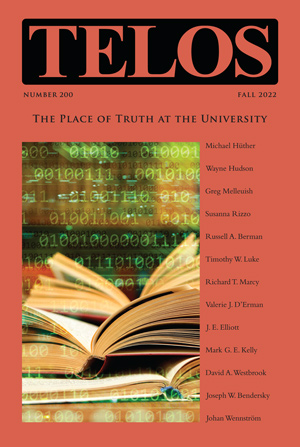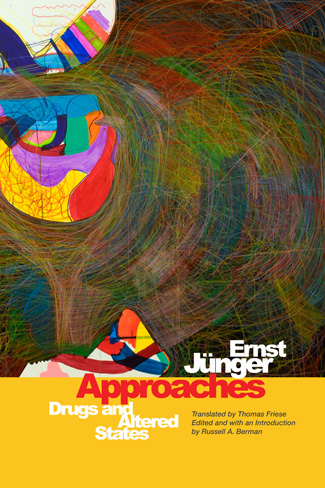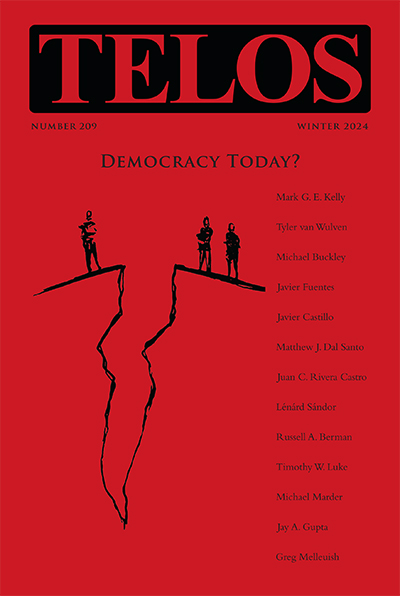By David Pan · Thursday, December 15, 2022  As the teaching assistant strike at the University of California extends into its fifth week, it seems that education has increasingly merged with activism. In fact, J. E. Elliott argues in our podcast interview that the development of the humanities in particular has moved so far in this direction that activism has become the explicit focus and attraction of majoring in the humanities for college students. As he lays out, such activist-oriented education is not a form of resistance but a result of the corporatization of the university, which involves not just links between corporations and universities but also the way in which college education has developed into a mass market commodity. The expansion of higher education, in promoting the admission of larger proportions of the population into college, has diluted the elite character of the college degree, making it into a more purely professional qualification and forcing colleges to devote more effort into justifying the value of their degrees for the job market. Because the ideals of inclusion and of merit are inherently contradictory, integrating more students into college has devalued the degree credential and therefore colleges must design their programs with an eye toward different segments of the higher education market. Consequently, the humanities at U.S. universities have evolved to establish “Brand English” to compete with “Brand STEM” and “Brand Business” by promoting social activism as its main distinguishing characteristic. As the teaching assistant strike at the University of California extends into its fifth week, it seems that education has increasingly merged with activism. In fact, J. E. Elliott argues in our podcast interview that the development of the humanities in particular has moved so far in this direction that activism has become the explicit focus and attraction of majoring in the humanities for college students. As he lays out, such activist-oriented education is not a form of resistance but a result of the corporatization of the university, which involves not just links between corporations and universities but also the way in which college education has developed into a mass market commodity. The expansion of higher education, in promoting the admission of larger proportions of the population into college, has diluted the elite character of the college degree, making it into a more purely professional qualification and forcing colleges to devote more effort into justifying the value of their degrees for the job market. Because the ideals of inclusion and of merit are inherently contradictory, integrating more students into college has devalued the degree credential and therefore colleges must design their programs with an eye toward different segments of the higher education market. Consequently, the humanities at U.S. universities have evolved to establish “Brand English” to compete with “Brand STEM” and “Brand Business” by promoting social activism as its main distinguishing characteristic.
Without the traditional literary and intellectual canons, the focus of humanities education has shifted toward promoting diversity, equity, and inclusion, which have become in many respects code words for identity politics, socialist-inspired redistribution, and college for all as entry into the job market. But because these three policies are partisan positions that have been enshrined as overarching truths (or in Elliott’s terms, “truth-posits”) for higher education, college humanities have to a large extent abandoned genuine debate about the origins and consequences of different ideas in favor of activist promotion of such ideas. The strike itself foregrounds the focus on equity without, however, considering the consequences of such a policy.
Continue reading →
By Telos Press · Wednesday, December 14, 2022 In today’s episode of the Telos Press Podcast, David Pan talks with J. E. Elliott about his article “Brand English and Its Discontents: Situating Truth and Value in the University Today,” from Telos 200 (Fall 2022). An excerpt of the article appears here. In their conversation they discuss how the pressure to commercialize university work has led to the creation of academic brands; how dissent has converged with commercialization at the university; why there is a conflict between meritocracy and inclusion, and how academic branding resolves it; how the peer review process has been undermined by academic branding; what a return to meritocratic values would look like; and why it is more appropriate to speak of truth-posits rather than truth as a goal of university work. If your university has an online subscription to Telos, you can read the full article at the Telos Online website. For non-subscribers, learn how your university can begin a subscription to Telos at our library recommendation page. Print copies of Telos 200 are available for purchase in our online store.
Continue reading →
By Telos Press · Monday, December 5, 2022 New from Telos Press: Approaches: Drugs and Altered States, by Ernst Jünger. Order the paperback edition today in our online store and save 20% by using the coupon code BOOKS20. Also available in Kindle ebook format at Amazon.com.
Approaches: Drugs and Altered States
by Ernst Jünger
Translated by Thomas Friese
Edited and with an Introduction by Russell A. Berman
 Telos Press Publishing is delighted to announce the publication of Ernst Jünger’s Approaches: Drugs and Altered States, now available in English translation. Telos Press Publishing is delighted to announce the publication of Ernst Jünger’s Approaches: Drugs and Altered States, now available in English translation.
In Approaches, Jünger describes his experiences with drugs over the course of his life, ranging from youthful drinking sprees, through experiments with hashish and morphine, to more powerful psychotropic substances like mescaline, peyote, and LSD. Taking his readers on a remarkable journey from beer to hallucinogens, he provides fascinating vignettes from key moments in Germany’s troubled twentieth century. Approaches is also a fundamentally philosophical, even spiritual journey toward hidden dimensions of existence that, in Jünger’s view, have been eclipsed by the ambient noise of modern life. The ecstatic altered states provided by drug use, he claims, can help us approach them and find a deeper truth.
Continue reading →
By David Pan · Monday, November 28, 2022 Populism has now arrived in China. As opposed to the 1989 protests driven by students as well as an intra-government political struggle, the current unrest, while including students, has been driven much more clearly by a broader mass of people who have grown frustrated with the bureaucratic overreach of the zero COVID policy. With the largest and most comprehensive system of bureaucratically organized surveillance, management, and domination of the populace in the world, China has certainly been ripe for such populist revolt. While the original theory of the new class was developed by Milovan Djilas in order to explain state socialism in the Soviet Union, the populist reaction to the new class has up to now been associated mainly with liberal democracies whose state bureaucracies are still relatively undeveloped when compared to the Chinese version. The Chinese state receded somewhat during the reform and opening up period, but the rule of Xi Jinping, the growth of the surveillance state, and especially the zero COVID policy have led to new extremes in the level of new class management of the population. Moreover, the lockdowns and their economic effects have highlighted the divide between the new class and the broader populace. As one protester shouted to the police, the police are state functionaries with stable incomes while most of the people are dependent on the flourishing of a market economy that has been throttled by the COVID lockdowns.
Continue reading →
By Telos Press · Wednesday, November 23, 2022 In today’s episode of the Telos Press Podcast, David Pan talks with Richard T. Marcy and Valerie J. D’Erman about their article “The Sensemaking and Construction of Political Narratives in Academic Settings,” from Telos 200 (Fall 2022). An excerpt of the article appears here. In their conversation they discuss Max Weber’s distinction between political advocacy and university teaching, and how this distinction is relevant for analyzing territorial acknowledgments; why the framework of narrative sensemaking is appropriate for analyzing territorial acknowledgments; the way in which territorial acknowledgments have developed through a process of sensebreaking, sensegiving, and senselocking; how the territorial acknowledgment represents a kind of truth in academia; Weber’s distinction between neutrality and objectivity and his argument that all research inevitably has some sort of value orientation; and how that value orientation should function in the university, particularly with regard to the university’s civic function. If your university has an online subscription to Telos, you can read the full article at the Telos Online website. For non-subscribers, learn how your university can begin a subscription to Telos at our library recommendation page. Print copies of Telos 200 are available for purchase in our online store.
Continue reading →
By Florindo Volpacchio · Tuesday, November 15, 2022 Characterizing a concept as a goal is a misleading way to approach a critique. At best, it tries to imply a teleological argument. (I’ll leave it to the reader to decide whether that is a play on words.) In actuality here, it subsumes the normative argument under its instrumental implementation. As I noted in my previous commentary, the real story is being lost within the prism of an abstract liberalism that refracts the spectrum of colors back into a singular light. So let’s look at that light.
What is the goal of affirmative action? That isn’t really made clear by its critics. Like most cases in these situations, it becomes an all-encompassing buzzword to connote some kind of progressive agenda that they believe infringes on civil liberties. What is made clear is that they don’t like what is alleged to be its methods, in the case before us, racial classifications. But is this really what’s it all about, Alfie? There lies the rub. Those advocates who are prosecuting affirmative action before the Court, and those who cheer them on, are arguing for a decision that allows the justifiable use of racial profiles to infiltrate the admissions game. But before we let loose the dialectic of enlightenment, let’s get the story straight.
Continue reading →
|
|
 As the teaching assistant strike at the University of California extends into its fifth week, it seems that education has increasingly merged with activism. In fact, J. E. Elliott argues in our podcast interview that the development of the humanities in particular has moved so far in this direction that activism has become the explicit focus and attraction of majoring in the humanities for college students. As he lays out, such activist-oriented education is not a form of resistance but a result of the corporatization of the university, which involves not just links between corporations and universities but also the way in which college education has developed into a mass market commodity. The expansion of higher education, in promoting the admission of larger proportions of the population into college, has diluted the elite character of the college degree, making it into a more purely professional qualification and forcing colleges to devote more effort into justifying the value of their degrees for the job market. Because the ideals of inclusion and of merit are inherently contradictory, integrating more students into college has devalued the degree credential and therefore colleges must design their programs with an eye toward different segments of the higher education market. Consequently, the humanities at U.S. universities have evolved to establish “Brand English” to compete with “Brand STEM” and “Brand Business” by promoting social activism as its main distinguishing characteristic.
As the teaching assistant strike at the University of California extends into its fifth week, it seems that education has increasingly merged with activism. In fact, J. E. Elliott argues in our podcast interview that the development of the humanities in particular has moved so far in this direction that activism has become the explicit focus and attraction of majoring in the humanities for college students. As he lays out, such activist-oriented education is not a form of resistance but a result of the corporatization of the university, which involves not just links between corporations and universities but also the way in which college education has developed into a mass market commodity. The expansion of higher education, in promoting the admission of larger proportions of the population into college, has diluted the elite character of the college degree, making it into a more purely professional qualification and forcing colleges to devote more effort into justifying the value of their degrees for the job market. Because the ideals of inclusion and of merit are inherently contradictory, integrating more students into college has devalued the degree credential and therefore colleges must design their programs with an eye toward different segments of the higher education market. Consequently, the humanities at U.S. universities have evolved to establish “Brand English” to compete with “Brand STEM” and “Brand Business” by promoting social activism as its main distinguishing characteristic. 


